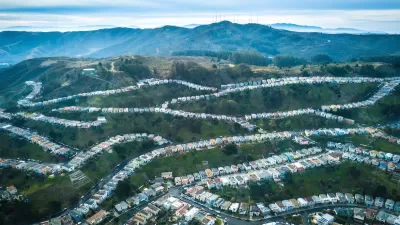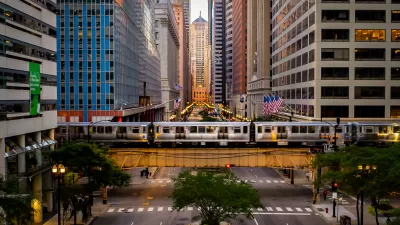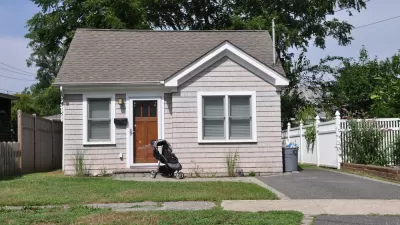On the heels of the Obama Administration's Housing Development Toolkit, Jonathan Coppange examines how federal policy has distorted the housing market.

Jonathan Coppange, a visiting senior fellow at the R Street Institute researching urbanism and civil society, writes an in-depth op-ed describing the effects of federal policy on the country's housing market. Coppange's core claim: "the Federal Housing Administration has to relegalize Main Street."
Coppange credits FHA standards for loans for the federal prohibition of Main Street in smaller and distressed communities. "To this day," writes Coppange, "FHA standards for loans, which set the market for the entire private banking sector, prohibit any but the most minimal commercial property from being included in residential development."
"As a groundbreaking report [pdf] by New York City’s Regional Plan Association found, these standards are 'effectively disallowing most buildings with six stories or less,'" adds Coppange. "And depending on the program, a building could have to reach to 17 stories before it is eligible for participation in the normal housing markets."
In addition to supporting some of the recommendations included in the Obama Administration's Housing Development Toolkit, Coppange also suggests raising caps on commercial space and income. Although some of the commentary following the Obama Administration's release of the toolkit noted the Executive Branch's lack of influence over housing policy at the local level, Coppange insists that even with local reforms, "small-scale building efforts would too often die in the halls of the FHA and the Department of Housing and Urban Development."
FULL STORY: To end the affordable housing crisis, Washington needs to legalize Main Street

Depopulation Patterns Get Weird
A recent ranking of “declining” cities heavily features some of the most expensive cities in the country — including New York City and a half-dozen in the San Francisco Bay Area.

California Exodus: Population Drops Below 39 Million
Never mind the 40 million that demographers predicted the Golden State would reach by 2018. The state's population dipped below 39 million to 38.965 million last July, according to Census data released in March, the lowest since 2015.

Chicago to Turn High-Rise Offices into Housing
Four commercial buildings in the Chicago Loop have been approved for redevelopment into housing in a bid to revitalize the city’s downtown post-pandemic.

DC Bikeshare System Breaks Ridership Record
Capital Bikeshare users took over 20,000 rides on one day in March.

EV Infrastructure Booming in Suburbs, Cities Lag Behind
A lack of access to charging infrastructure is holding back EV adoption in many US cities.

Seattle Road Safety Advocates Say Transportation Levy Perpetuates Car-Centric Status Quo
Critics of a proposed $1.3 billion transportation levy say the package isn’t enough to keep up with inflation and rising costs and fails to support a shift away from car-oriented infrastructure.
Barrett Planning Group LLC
City of Cleburne
KTUA Planning and Landscape Architecture
HUD's Office of Policy Development and Research
Mpact Transit + Community
HUD's Office of Policy Development and Research
City of Universal City TX
ULI Northwest Arkansas
City of Laramie, Wyoming
Urban Design for Planners 1: Software Tools
This six-course series explores essential urban design concepts using open source software and equips planners with the tools they need to participate fully in the urban design process.
Planning for Universal Design
Learn the tools for implementing Universal Design in planning regulations.






















